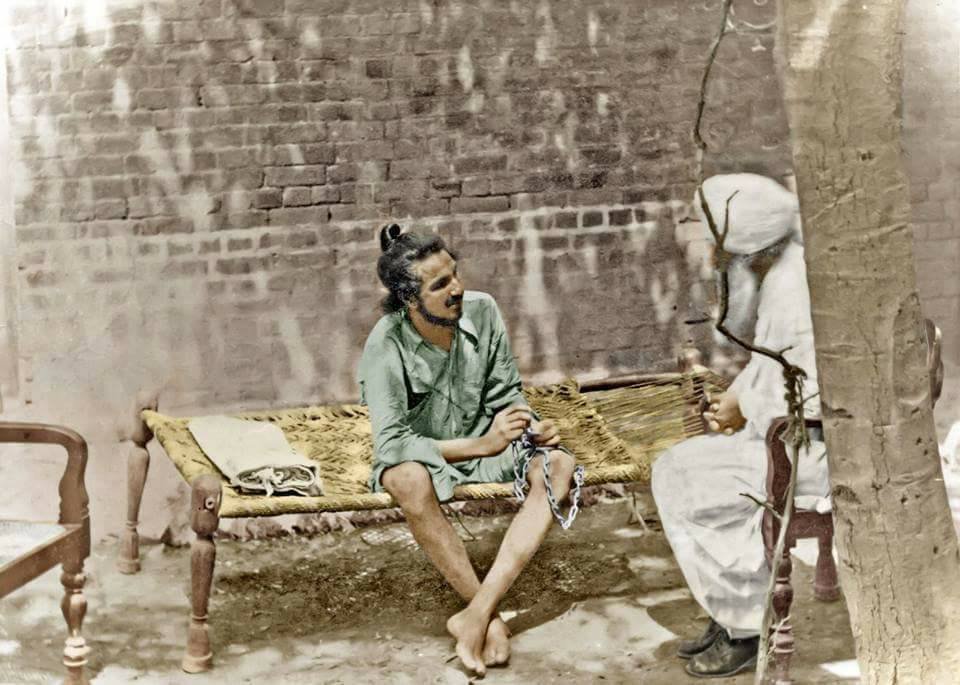The legacy of Bhagat Singh and his comrades serves as a reminder of the revolutionary zeal that thrived in this region not long ago. They were committed to and sacrificed their lives for an ideology and a society that was not restricted by artificial boundaries of language, race and religion, but for the entire working class of the world.
By Waseem Altaf
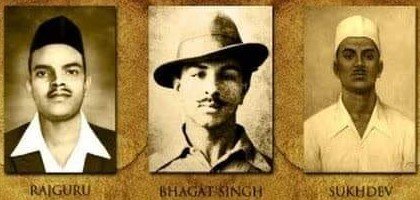
Looking at our history books, we find numerous characters, glorified as national heroes, however when closely examined we discover that they were nothing but opportunists and collaborators. We also find that since history books in Pakistan, as a matter of policy, focus on Pakistan movement rather than anti-colonialism, these men do not deserve any mention in our writings, particularly the official ones.
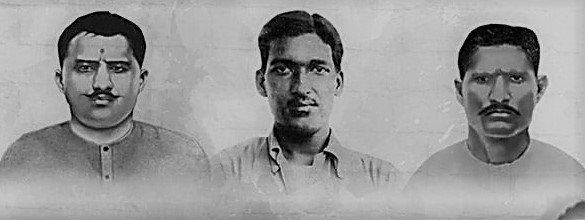
On the other hand, there are a significant number of real heroes, who have been conveniently pushed aside by our “ideologues” and the Establishment. Bhagat Singh and his comrades were among them. There is no mention of these men in our textbooks and few, if any, know them in this country. However, these men were the true symbols of defiance against the oppressive colonial rule, while the freedom the Indian Sub-continent won, to a great extent, is owed to these unsung heroes who sacrificed their lives for the liberation of their fellow countrymen.
Without indulging into an unending debate as to who is a terrorist and who qualifies as a freedom fighter, and to what extent the application of violence is justified in a liberation struggle, the focus of the following is on the lives, the conviction and struggle of the unsung heroes.
Udham Singh
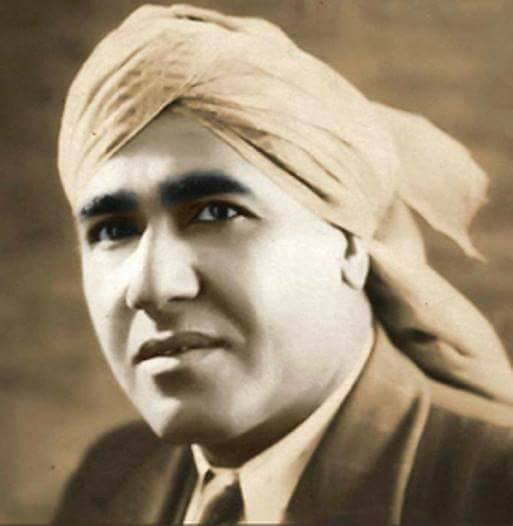
He was brought up in an orphanage. Both his parents passed away by the time he was seven. On April 13, 1919, Udham Singh was serving water to a peaceful gathering of around 20,000 Indians at Jalianwala Bagh, Amritsar, when on the orders of General Dwyer, around 90 armed soldiers opened fire on the unarmed civilians who had assembled there to listen to the speeches of their leaders. Estimates of death range from 379 to 1,800, but official records verify that 1,650 rounds of ammunition were used. Latest research has revealed that the massacre had occurred with full connivance of the Punjab’s Governor Michael O’Dwyer.
Udham Singh who survived the massacre, then vowed to take revenge in the Golden Temple. For 21 years, he continued with his revolutionary struggle and waited for the right moment to hit the main culprit until on March 13, 1940, he got the opportunity to avenge the Jalianwala Bagh massacre. At Caxton Hall London, he killed Michel O’Dwyer with a revolver. He never tried to escape, was caught and tried.
During the proceedings, when the court asked his name, he replied “Ram Muhammad Singh Azad”. An unprecedented transcendence of caste and creed rarely witnessed in the history of mankind. On July 31, 1941, he was hanged at Pentonville prison. In July 1974, his remains was exhumed and brought back to India by a special envoy of the Indian government. He got a martyr’s reception. Dr Shankar Dayal Sharma, the then Congress President and Gyani Zail Singh, the Punjab Chief Minister in 1974, received the casket. Prime Minister Indira Gandhi laid a wreath on the casket. Udham Singh was later cremated at his birthplace Suna in Punjab and his ashes were immersed in Sutlej River.
Ashfaqullah Khan, Thakur Roshan & Ramprasad Bismil
Ashfaqullah Khan along with Thakur Roshan Singh and Ramprasad Bismil, the comrades of Bhagat Singh and members of the Socialist Republican Party, were furthering the freedom struggle through fundraising. Due to severe paucity of funds to buy arms and ammunition, the group decided to rob the government treasury carried in the trains. On August 9, 1925, they looted a train in Kakori near Lucknow. However, the group was soon caught. In prison, while Ashfaq was saying his prayers an English officer remarked, “I would like to see how much of that faith remains in him when we hang the rat.” When Ashfaqullah was being taken for the execution, he was taking two steps at a time; he reached for the rope, kissed it and put it around his neck. Being a religious man, he was reciting the “kalima” when he swung on the gallows.
Today Ashfaqullah is a forgotten name, hanged at the age of 27, strongly believed that nationalism does not constitute religious identity.
Bhagat Singh, Rajguru & Sukhdev
Bhagat Singh was born in Banga village, near Lyallpur (now Faisalabad). As a teenager, he became an atheist. He thoroughly studied European revolutionary movements, while Karl Marx and Engels appear prominently in his diary. During his studies, he won an essay competition and was a great admirer of Iqbal the poet. To avenge the death of veteran freedom fighter Lala Lajpat Rai, killed by police violence, he shot and killed police officer J.P Saunders. Again, on April 8, 1929, he threw a cracker in the assembly corridor and shouted “inqilab zindabad” (long live revolution). Bhagat Singh along with Rajguru and Sukhdev were arrested for the murder of the police officer.
Bhagat Singh while quoting an Irish revolutionary said: “I am confident that my death will do more to smash the British Empire than my release”. This was when his father filed a mercy petition. While in condemned cell he wrote a pamphlet Why I Am an Atheist which has been published with the same title.
During his life and after his death Bhagat Singh inspired thousands of youth to actively join the independence movement which ultimately culminated in the liberation of the subcontinent from the colonial rule. He was reading Lenin’s works when at 4am in the morning jail warder Chater Singh asked him to take his last bath. Bhagat Singh along with his comrades Rajguru and Sukhdev were hanged in Lahore Central Jail on March 23, 1931.
Chandrashekhar Azad
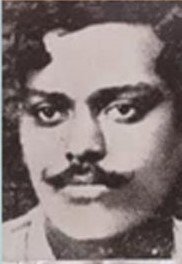
Chandrasekhar Azad, was a freedom fighter who was inspired by the non-cooperation movement of Mahatma Gandhi, while he actively participated in revolutionary activities. At the tender age of 15, he was caught and awarded 15 lashes for being an activist. With each stroke of the whip, he would raise a slogan. He then vowed that the British police would never capture him alive. He was also a poet and one of his poems is still recited which says “Dushman ki goliyon ka, Hum samna karenge, Azad hee rahein hain, Azad hee rahenge” (we will face the enemy’s bullets, we have been and will remain free). Azad kept his freedom struggle and remained involved in covert activities, when finally he was betrayed by a police informer. The British police in Alfred Park encircled him at Allahabad on February 27, 1931. Instead of surrendering to the enemy he shot himself in the temple.
Azad died for freedom while keeping his pledge that he would not be captured alive.
These unsung heroes and several others from diverse backgrounds — Muslims, Hindus, Sikhs and atheists — all fighting for the cause of the revolution shed their blood for the liberation of the people and the land, so that we, belonging to a different generation live a better life unfettered by the ignominy of imperialist domination and colonial exploitation. The debt of gratitude we owe to them can never be repaid.
Finally, it can be concluded that they were fighting a war of liberation against an oppressive colonial rule. Hence, they were revolutionaries and freedom fighters and not terrorists. And not to mention that unlike today’s terrorists, they never targeted innocent civilians to create fear, chaos in society to achieve political ends. They renounced their present for the future generations so that they can live in a society free from all kinds of prejudices, exploitation and discrimination on the basis of gender, class, and faith and have the right to decide for themselves. We should also realise that when no constitutional means are available to achieve political ambitions, the tendency to resort to violence increases manifold.
Here’s the full text of Ram Prasad Bismil’s iconic poem, Sarfaroshi Ki Tamanna:
Sarfaroshi ki tamanna ab hamaare dil mein hai
Dekhna hai zor kitna baazu-e-qaatil mein hai
Karta nahin kyun doosra kuch baat-cheet
Dekhta hun main jise woh chup teri mehfil mein hai
Aye shaheed-e-mulk-o-millat main tere oopar nisaar
Ab teri himmat ka charcha ghair ki mehfil mein hai
Sarfaroshi ki tamanna ab hamaare dil mein hai
Waqt aanay dey bata denge tujhe aye aasman
Hum abhi se kya batayen kya hamare dil mein hai
Khainch kar layee hai sab ko qatl hone ki ummeed
Aashiqon ka aaj jumghat koocha-e-qaatil mein hai
Sarfaroshi ki tamanna ab hamaare dil mein hai
Hai liye hathiyaar dushman taak mein baitha udhar
Aur hum taiyyaar hain seena liye apna idhar
Khoon se khelenge holi gar vatan muskhil mein hai
Sarfaroshi ki tamanna ab hamaare dil mein hai
Haath jin mein ho junoon katt te nahi talvaar se
Sar jo uth jaate hain voh jhukte nahi lalkaar se
Aur bhadkega jo shola-sa humaare dil mein hai
Sarfaroshi ki tamanna ab hamaare dil mein hai
Hum to ghar se nikle hi the baandhkar sar pe kafan
Jaan hatheli par liye lo barh chale hain ye qadam
Zindagi to apni mehmaan maut ki mehfil mein hai
Sarfaroshi ki tamanna ab hamaare dil mein hai
Yuun khadaa maqtal mein qaatil kah rahaa hai baar baar
Kya tamannaa-e-shahaadat bhi kisee ke dil mein hai
Dil mein tuufaanon ki toli aur nason mein inqilaab
Hosh dushman ke udaa denge humein roko na aaj
Duur reh paaye jo humse dam kahaan manzil mein hai
Wo jism bhi kya jism hai jismein na ho khoon-e-junoon
Kya lade toofaanon se jo kashti-e-saahil mein hai
Sarfaroshi ki tamanna ab hamaare dil mein hai.
Dekhna hai zor kitna baazuay qaatil mein hai

The High Asia Herald is a member of High Asia Media Group — a window to High Asia and Central Asia

